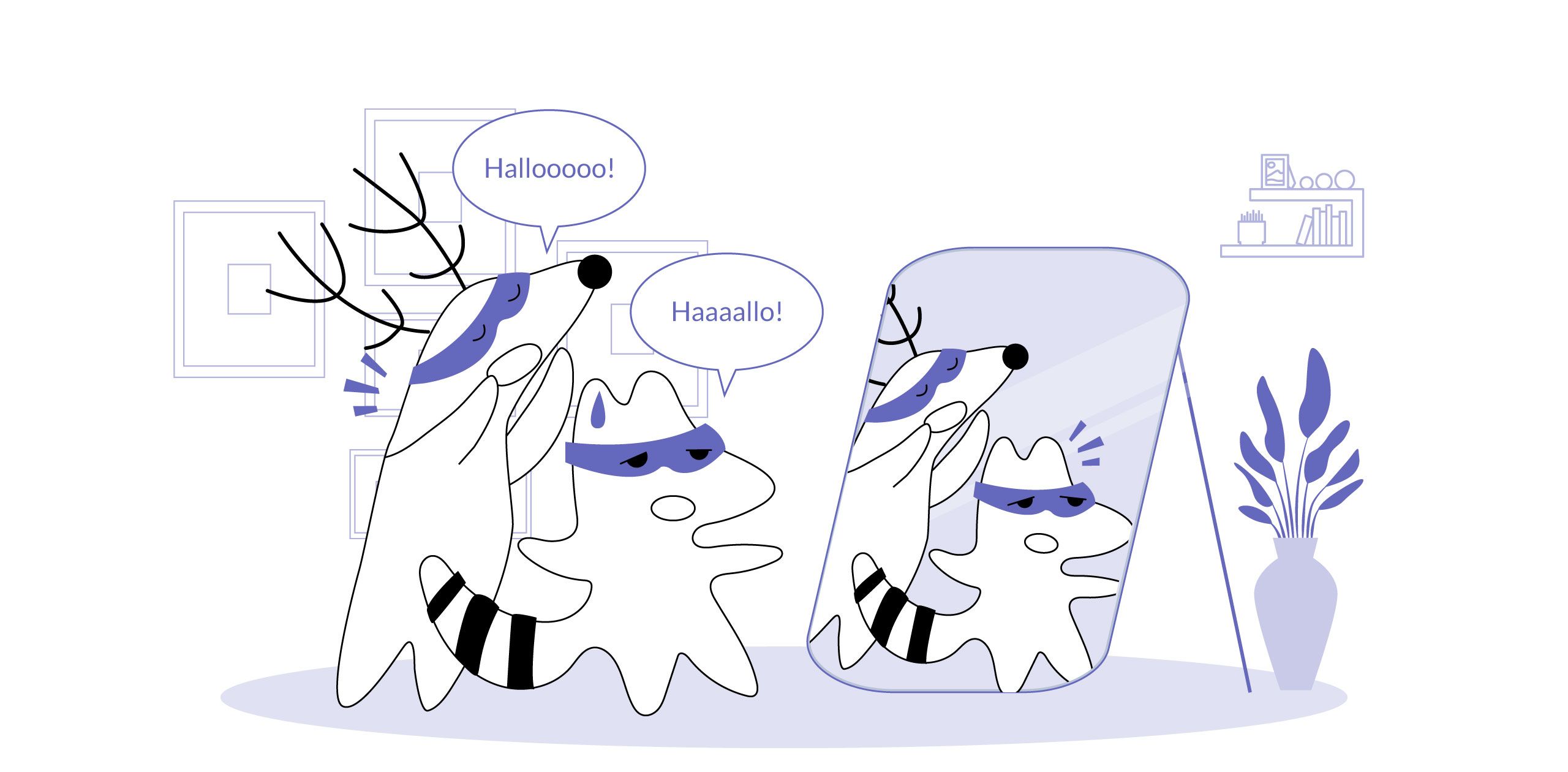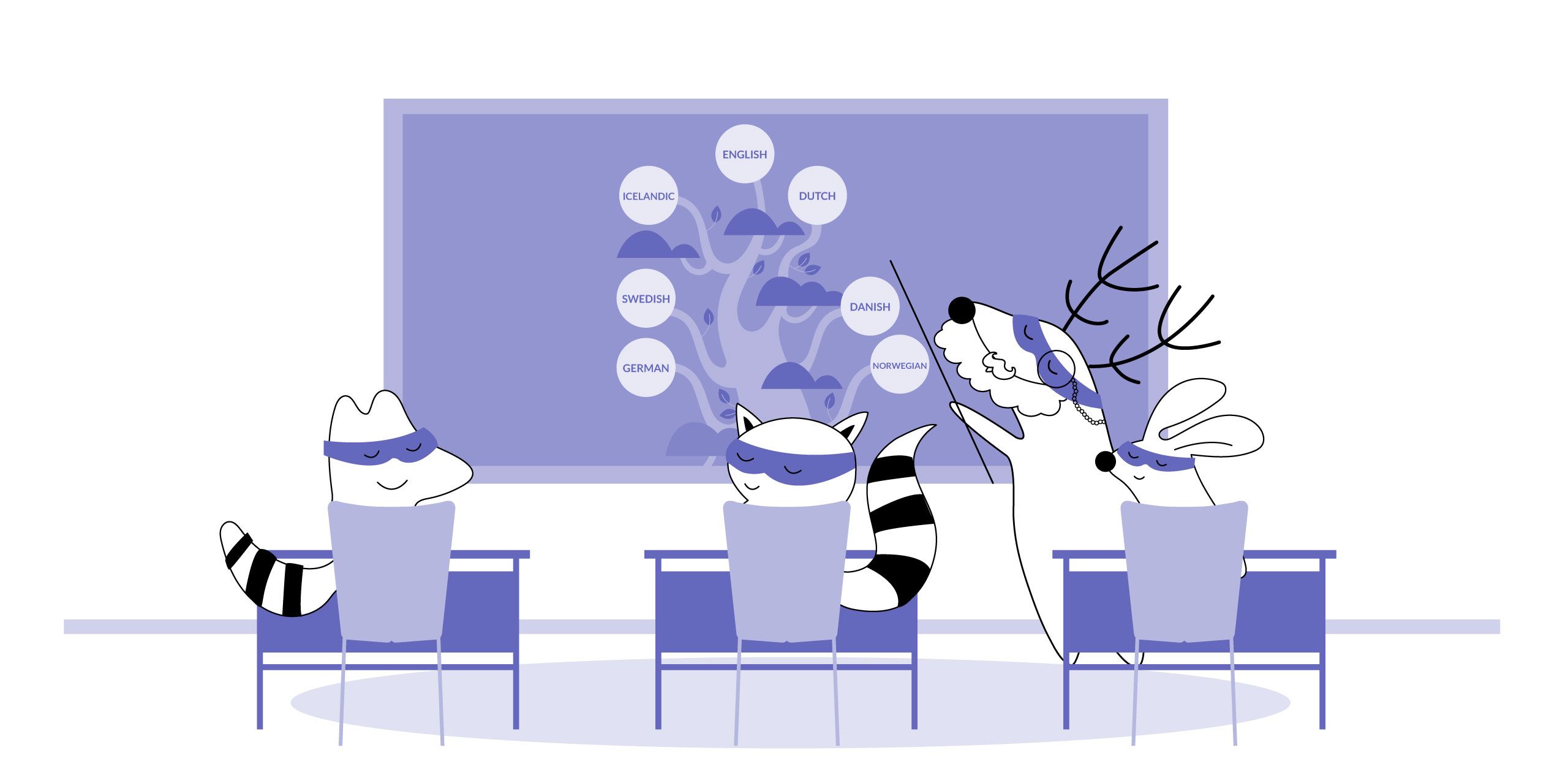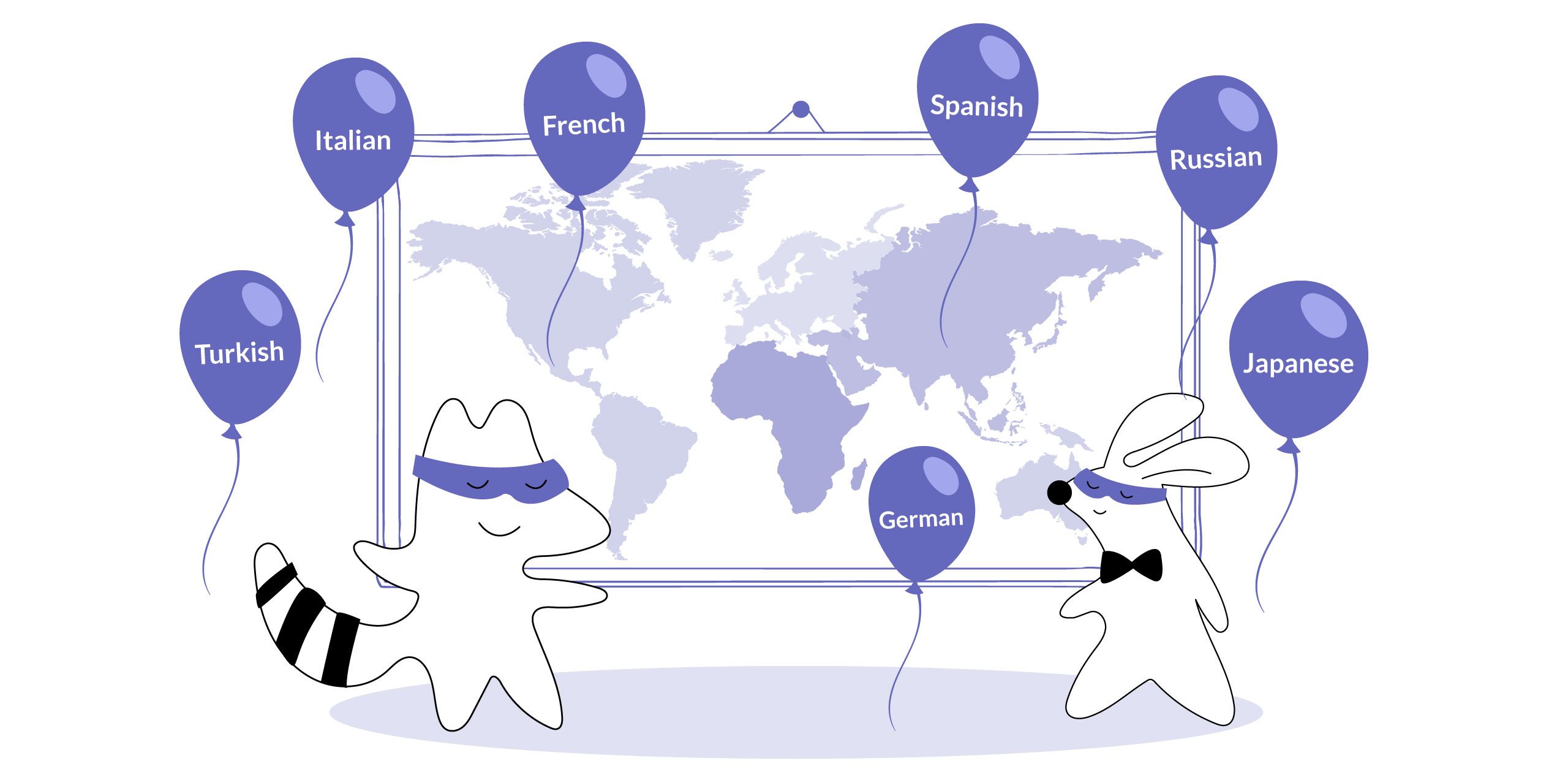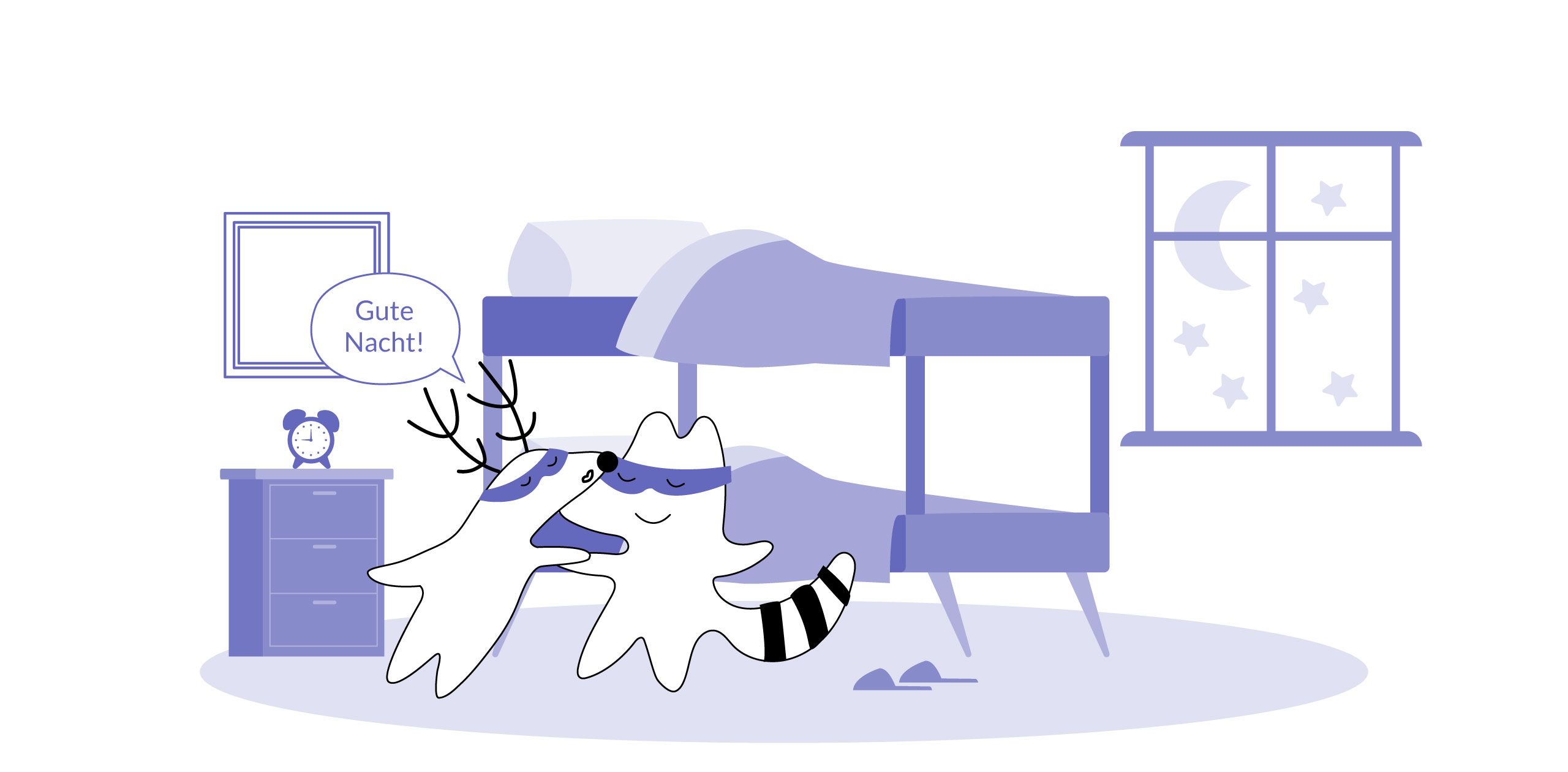
In our previous post, we explained how to correctly greet German people at any time of the day. Hopefully, you remember that you can say "Guten Morgen" (good morning) when buying your German breakfast, "Guten Tag" (good day) for as long as the sun shines, and "Guten Abend" (good evening) for meeting people at night.
We also introduced you to the phrase "Gute Nacht" (good night), which we want to focus on in this article. Besides "Gute Nacht," we want to offer you some other phrases and words, so you can choose what works best for you.
The more you enjoy the phrase you want to learn in German, the easier it will be to remember. Having fun is the most crucial factor in learning a foreign language, so we hope you enjoy this post while learning something new.
Learn German with Langster
"Gute Nacht" is "Good Night" in German
We already mentioned above that "good night" in English is "Gute Nacht" in German. Even though these two seem similar, there is a difference in the way they are said. Just like how English speakers use “good evening” as a greeting and “good night” as a farewell, Germans use these phrases for the same purposes.
As a result, you will not hear people greet you with "Gute Nacht" in Germany. This phrase is only for saying goodbye right before you go to bed. If you are partying with Germans in a bar until late evening, you would hear them say "Bis bald" or "Tschüss" (bye) instead.
As a result, you will primarily use "Gute Nacht" when you share a home or room with someone before going to your room or bed. Even though the situation can be more intimate, it is considered a formal way to say "good night" in German. For example, you might use it in a hotel when saying "good night" to the administrator.
German
English
Gute Nacht
Good night
Bis bald
Bye
Tschüss
Bye
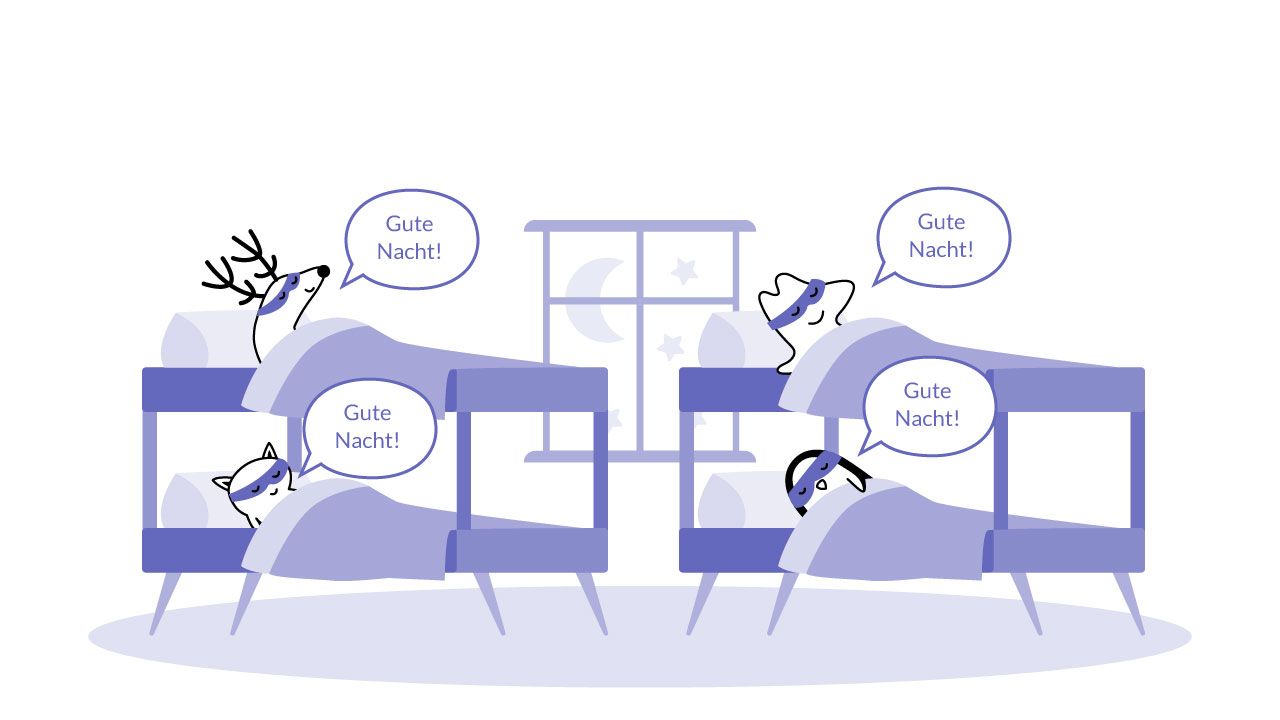
Other Ways of Wishing a German "Good Night"
Besides the typical "Gute Nacht" (good night) in German, many people are saying "sweet dreams" or "sleep well" before they go to bed. In German, you need the verb "träumen" (to dream) to refer to dreams.
Common sentences are:
German
English
Träum was schönes.
Dream something nice.
Träum schön.
Dream nicely.
Süße Träume.
Sweet dreams.
Wishing somebody "träum was schönes" or using similar sentences is pretty intimate in German, and you will mostly find partners, parents, or good friends using it. It often comes with nicknames like "mein Liebling" (my love) or "mein Schatz" (my treasure). We talked about them in a previous post if you want to learn more about them.
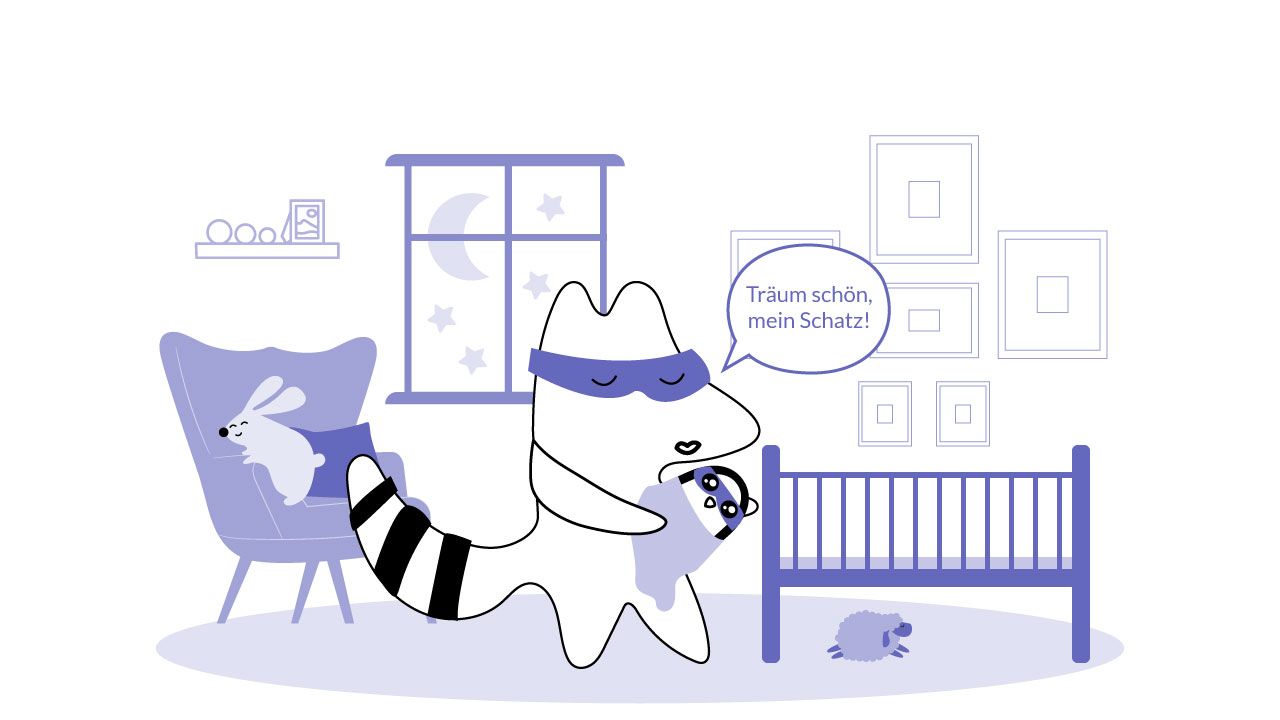
To wish somebody a good rest for the night, you have to use the verb "schlafen" (sleep). The most common expressions in this context are "schlaf gut," which is "sleep well" or "schlaf schön" (sleep nicely) in German.
Combine the German "Good Night" Wishes
You will also find combinations of both expressions mentioned above like "Gute Nacht und träum schön" (Good night and sweet dreams) or "Gute Nacht und schlaf gut" (Good night, sleep tight).
If you want to express this wish formally to somebody you don't know, you have to use the formal you-form - "Sie" - in German. "Sleep well" would be "Schlafen Sie gut."
German
English
Gute Nacht und träum schön.
Good night and sweet dreams.
Gute Nacht und schlaf gut.
Good night, sleep tight.
Schlafen Sie gut.
Sleep well (formal).
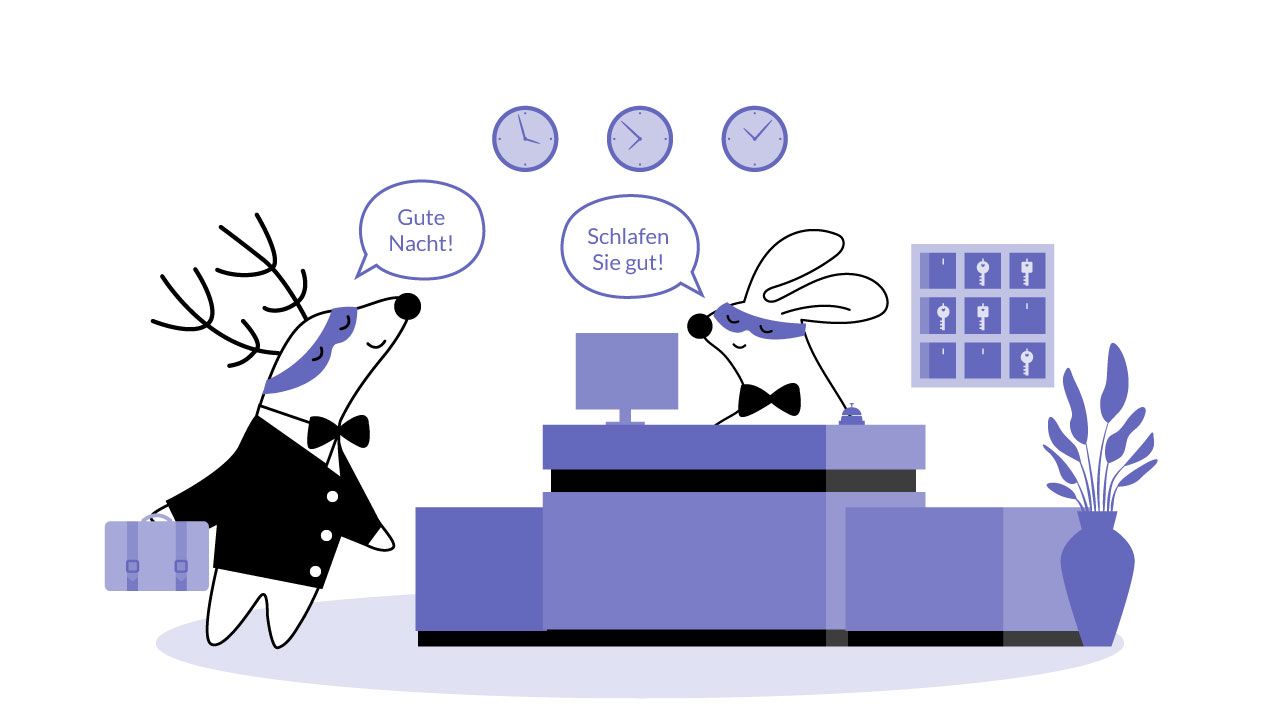
How to Ask About Last Night in German
If you have wished somebody a good night in German before going to sleep, it is appropriate to follow up the following day. It also can be an easy start for a conversation during breakfast.
To ask "How was your night?" or "How did you sleep?" in German, you will primarily use the verb "schlafen" (sleep) to form sentences. In the morning in Germany, the most common question is "Hast du gut geschlafen?" which means "Did you sleep well?"
The answer would be "Ja, ich habe gut geschlafen" (Yes, I slept well) or "Nein, ich habe nicht gut geschlafen" (No, I did not sleep well.) The tense that you use in this sentence is German perfect. German tenses will be covered in a future post - check our blog to learn more.
German
English
Hast du gut geschlafen?
Did you sleep well?
Ja, ich habe gut geschlafen.
Yes, I slept well
Nein, ich habe nicht gut geschlafen.
No, I did not sleep well.
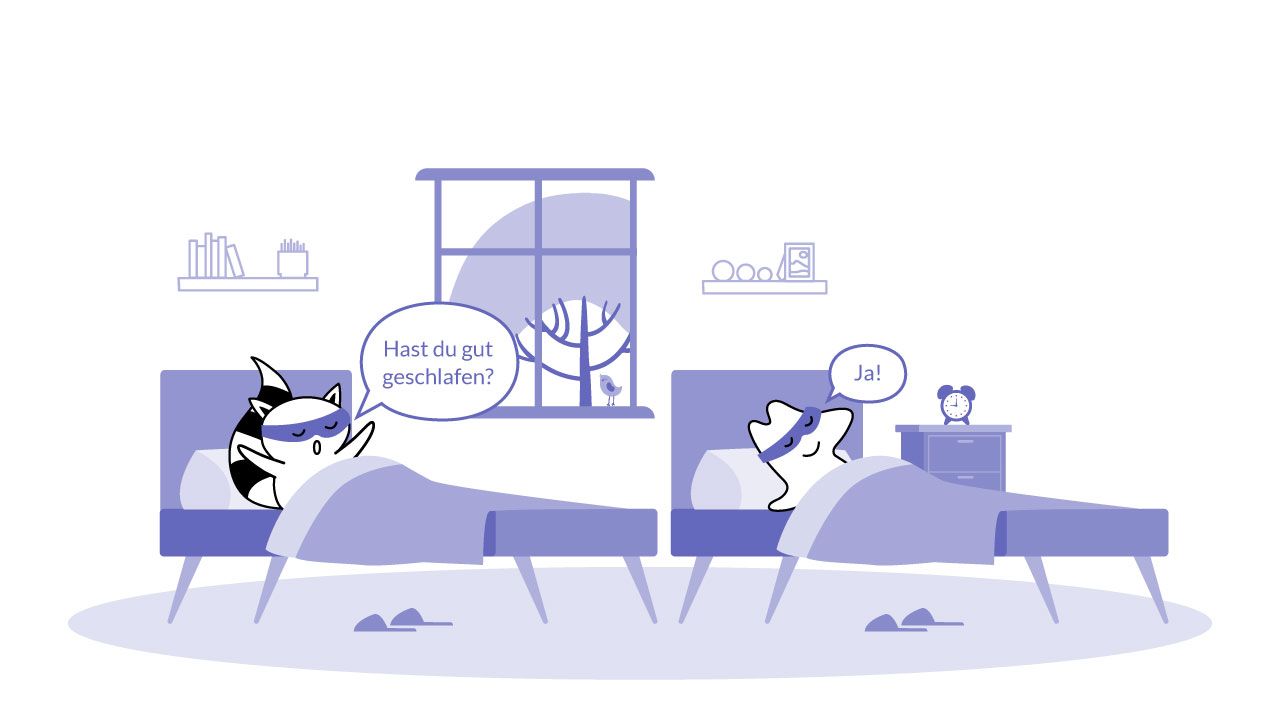
Good Night Songs in German
It is widespread in Germany to tell a bedtime story or sing a goodnight song to kids before sleeping. As singing and listening to songs in a foreign language can help with language learning, don't hesitate to try singing the following - a famous good night song in German:
Lalilu, nur der Mann im Mond schaut zu, wie die kleinen Sternlein schlafen, nun schlaf auch du.
The sentence literally means, "Lalilu, just the man on the moon is watching you, how the small stars are sleeping you should sleep as well." In other words, the song is saying the child should ease their worries and calmly go to sleep.
Another famous song is: "Schlaf Kindchen schlaf, der Vater hütet die Schafe. Die Mutter schüttelt das Bäumelein, fällt herab ein Träumelein. Schlaf Kindchen schlaf."
The literal translation is, "Sleep, little kid, sleep, daddy is herding the sheep. Mommy is shaking the tree, so there falls a little dream. Sleep, little kid, sleep." This short goodnight story expresses the same sentiment as the first song. The child should fall asleep, feel safe and will have sweet dreams.
A Few Thoughts Before Saying "Good Night" to You
We hope that now you can figure out your favorite way of saying "good night" in German - and that you will have a chance to use it soon. Remember that "Gute Nacht" (good night) is appropriate for formal and informal contexts but is not used as a general farewell.
If you have a close relationship with someone in Germany, you can wish them "Schöne Träume" (sweet dreams) or say "Schlaf gut" (sleep well) before sleeping. And to learn more about German farewells, you can check the article about saying goodbye in German on our blog.
We hope you keep having fun learning German and wish you amazing progress in the future. If you need help, you can check out the Langster app, which helps you practice and enjoy the learning process.
Learn German with Langster






